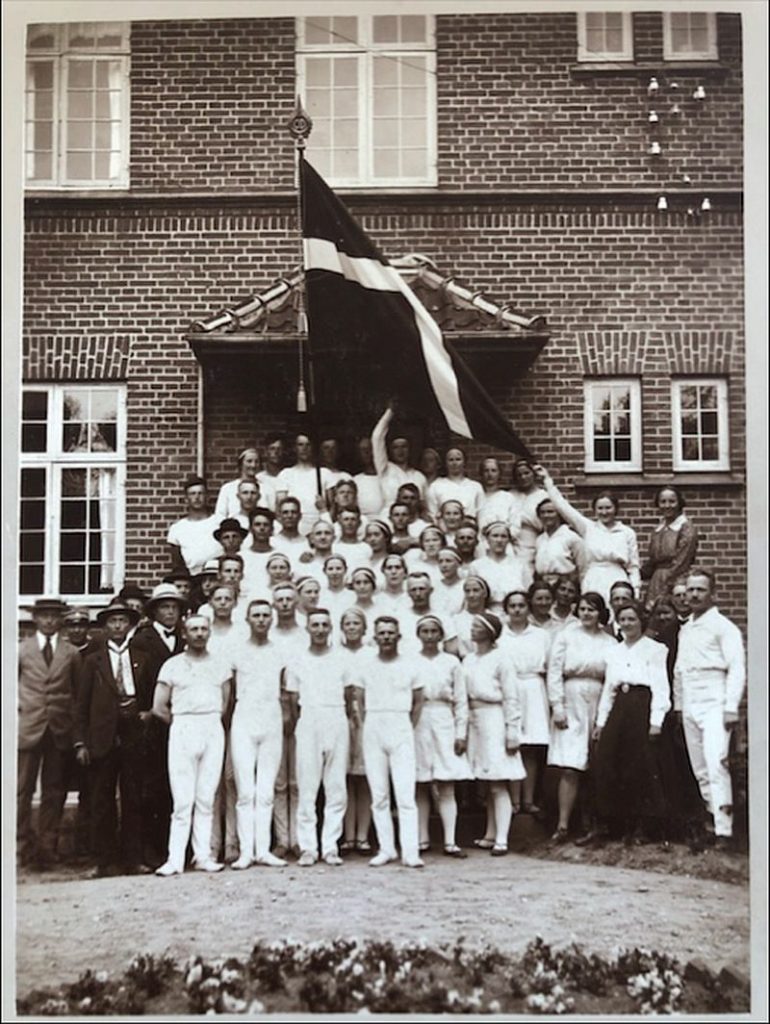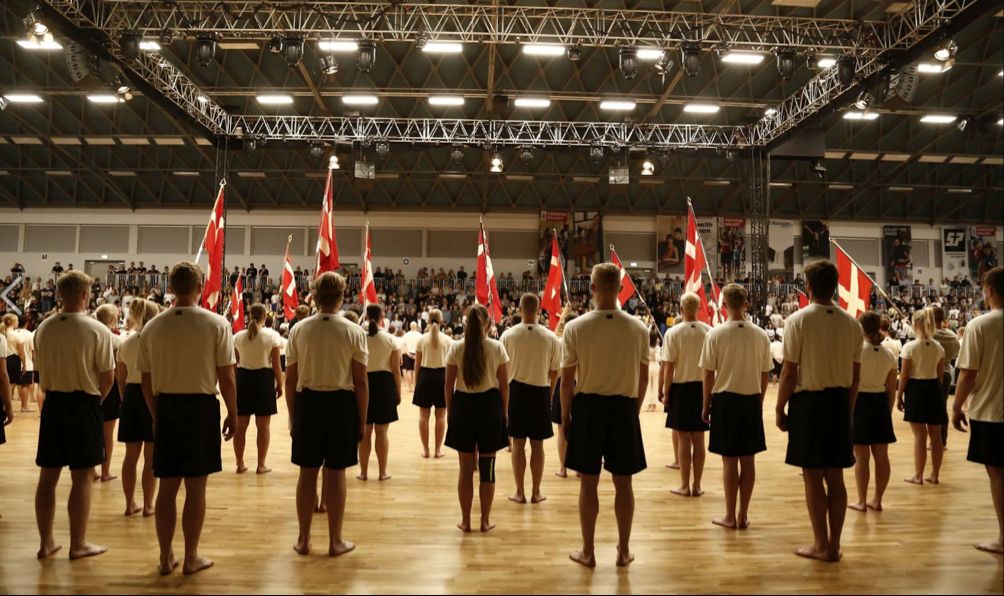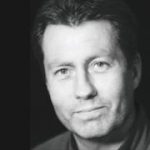The fight about gymnastics
over 100 years
Hans Bonde (born in 1958) is Professor, Ph.D. and Doctor of Philosophy in history at the Department of Nutrition, Exercise and Sports, University of Copenhagen. At the national team and Danish champion in judo 1977, 1978 and 1981. Lecturer and tour guide in European capitals about the cultural history of the body. For his research and proficiency in communication, Hans Bonde received the Prize for Gender Equality by the Union of Employees in Retail and Administration (HK), 1994; ‘Teacher of the Year’, Copenhagen University, 2004; the Gerlev Prize 2007; ‘Best Danish History Book, 2007; the Danish Association of Masters and PhDs, Research Prize for Humanities, 2009; Prize for Gender Research, Paul Lyngby’s Foundation, 2018.
Pre-order the book: press@forlag.sdu.dk
Dedicated to
Former principal Gunnar B. Hansen, who risked his neck and in 1992 took the crucial step of opening the school to the modern, enlightened society.
Bon mot 1
The inauguration of the impressive swimming hall and the beautiful new art for the park of the school was not only the celebration of the progress and renewal of one folk high school. To me, it also marked the entrance to a time when the folk high schools – after several years of difficult conditions – again feel that things are moving in the right direction. A time, when the folk high schools again are going to play an important part for Danish society and the Danish population.
(from the then Minister of Education Bertel Haarder’s inauguration speech, Yearbook, 2007, p. 4.)
Bon mot 2
Popular information, enlightenment for life and democratic formation are the core values of the folk high school. Freedom is embodied in the dealings with these concepts by the individual school and the individual teacher.
(Principal Uffe Strandby, Yearbook 2009, p.33)
Astro-Gymnastics
Go on a starlit night,
stand on your head,
leave your feet dangling
outwards into space,
and let the starry
firmament you tread
be, for the moment,
your elected base.
Feel Earth’s colossal weight
of ice and granite,
of molten magma,
water, iron, and lead;
and briefly hold
this strangely solid planet
balanced upon
your strangely solid head.
(Danish poet and polymath Piet Hein)
The picture from the inauguration of Ollerup Arena, where Minister of Culture Mette Bock (Liberal Alliance) gave the inauguration speech, shows how functional the new arena is for the gymnastics of the elite team and many other activities.
PREFACE BY BERTEL HAARDER
- ESSENCE OF THE HISTORY OF DANISH FOLK HIGH SCHOOLS AND DANISH CULTURE
The story about the Academy of Physical Education in Ollerup is not only part of the history of the Danish tradition of folk high schools, but also a story about Danes with attitudes, ambitions and a burning love of the mother country – so burning that their posthumous reputation was somewhat stained by their blindness to democracy and their admiration of totalitarian dictators such as Mussolini and Hitler. The same was the case with one of the greatest authors of the world, Norwegian Knut Hamsun, and one of Denmark’s greatest playwrights, Kaj Munk, who, however, in the end, spoke so forcefully against the German occupation power that it cost him his life.
FOLK HIGH SCHOOLS: [Danish: Folkehøjskoler]
The strong independent Danish farmers’ movement established a tradition of the ‘folk high schools’ that were intended to allow young people to be educated at colleges in the countryside where the aim was not to take degrees or exams but to develop themselves in a spirit of community with other young people. However, in this book, Ollerup Folk High School is called the ’Academy of Physical Education in Ollerup’, which is the present name of the school.
It is easy to show hindsight, and the victors always write the history. Let us remember that the history of Danish literature would be considerably poorer if we were to leave out the many naive and unsuspecting intellectuals who praised Communism and Stalin without knowing what happened in Gulag.
Knut Hamsun’s wonderful novels do not become less valuable because he was a political dreamer and the Nazis’ useful fool. That does not change the fact that he turned me and numerous others into lovers of literature. And what about the Danish Harald Bergstedt’s poems ”The sun is so red, mother”, “I know about a lark’s nest” and
Do the Danish writers Hans Kirk’s and Martin Andersen Nexø’s novels become less valuable because both subscribed to Communism? And what about Norwegian writer Nordahl Grieg’s “Surrounded by enemies”?
In the same way, one can ask: Does the founder of the ’Academy of Physical Education in Ollerup’ Niels Bukh’s contribution to the youth, the gymnastics and the revival of so-called ‘folkelig’ democratic national sentiment become less valuable because he, like so many others, was a critic of democracy and politically illiterate like some other people from the folk high schools in the 30’s?
The Danish concept of ‘folkelighed’
The Danish concept of ‘folkelighed’, translated here as ‘democratic national sentiment’, is central to an understanding of the thinking of the Danish rural population. Folkelighed has a range of meanings (democratic spirit, common touch, broad popular appeal) that contrast with ‘elitist’ and the concept involves a vision that all citizens of a society can come together in a national community. In this vision, the farmers are the backbone of the nation since they feed the rest of the population, and in Denmark they played a crucial role in the realization of parliamentarism in 1901.
One cannot totally compare the examples, because Niels Bukh’s work was not only about a healthy mind in a healthy body, but also about a healthy people, by which was meant a people that did not let itself be led by sectional interest and party-political ‘bickering’, but by good citizenship and a will to be led by strong authorities. As we know, this way of thinking can be misused by demagogues and warmongers. In his fascination of the Third Reich, Niels Bukh, however, went much further than Kaj Munk as Bukh co-operated with the Germans far into the occupation of Denmark.
In the 30’s, Ollerup was paid a visit by the Japanese Shigeoshy Matsumae, who visited some Danish folk high schools and later founded the big Tokai University Group, based on Grundtvig’s ideas. In his books, he wrote with enthusiasm about the visits. However, he took a small reservation as to Ollerup, which he found too militaristic. He himself was a pacifist and was punished for that during the war.
GRUNDTVIGIANISM
The common denominator in and the main source of inspiration for the Danish farmers’ movement was Grundtvigianism, an ideology inspired by the highly influential Danish poet and clergyman N.F.S. Grundtvig (1783–1872), who argued against the ‘dead and weary’ knowledge in the Danish school system and tried to revive the mythological heritage of Scandinavia.
In Præstø, Matsumae established a boarding school, which later became a Danish-Japanese sports folk high school. I met him when I as minister of education was to hold the inauguration speech. He showed me a photo album from the visits to Danish folk high schools. I have seen some of the pictures as huge photostats in the entrances at the Tokai University in Tokyo and once at the Tokai University on Hokkaido. The university in Tokyo has a small museum about Denmark and Grundtvig with old and new books in Danish, Japanese and English by, among others, the Danish historian Ove Korsgaard.
In Japan, Danish gymnastics has quite a special aura. Gymnastics is called ’Denmaku taiso’, and, among others, the Jiyu Gakuen schools engage in Danish gymnastics and have participated in national festivals of the Danish Gymnastics and Sports Associations. Niels Bukh’s gymnastics gave the original inspiration.
The point is: Niels Bukh and his work are not only a monument and a milestone in the history of the Danish folk high schools. Niels Bukh’s gymnastics was known far beyond the borders of Denmark. ’Strong man’ or not: You have to hand it to him that he inspired ten thousands of young people and gave them strength of will, a sense of citizenship, body-consciousness and substance in their lives – exactly what was the historical contribution by the folk high school in a country and a people that were bent down by defeat and surrender.
The many former Ollerup students and members of staff have good reasons to love and praise Niels Bukh’s work and school. It is with Niels Bukh as with so many other things: Everything human is fragile and has a reverse side. Therefore, we sing, ”Any glory, any stain I shall carry…” in the patriotic song “I love the green groves”.

The students’ meetings have grown quite a lot since Niels Bukh’s first time. Here is a photo from the students’ meeting in 1917 when Niels Bukh teaches at Ollerup Folk High School, three years before he has his own school built just beside it. Bukh at the bottom to the right. Note that Bukh is not yet placed at the top of the group. It comes later on more hierarchical images.
In my home at Rønshoved Folk High School, we talked quite a lot about Ollerup and about Niels Bukh and Kristian Krogshede (who later founded Gerlev Sports Folk High School). At Rønshoved, too, we offered a popular a leader education for the gymnastics and sports associations, for which the folk high schools were the main suppliers.
At students’ meetings and parents’ days there were fine gymnastics shows where it was also allowed to look at the girls’ beautiful forms. They started with flag entry and singing Grundtvig’s ”Hail to thee, our flag / cross flag white … the Danes follow you freely.” The boys (the farmhands) marched in singing, ”Without sorrow we cannot sing your name, Denmark”, which like the hymn-like ”Denmark for thousand years” was written by the great, but forgotten poet, Valdemar Rørdam. ”The hymn” finishes with the solemn words, “Use us where you can / take us man by man / stand will our mother country / as free men’s inheritance.”
Today, this will make many chuckle; but we must remember the historical background: The traumatic fever from Dybbøl [where the Danes were defeated by the Germans in 1864] and meaningless sacrifices. It was “Sons of the defeated” who were singing (cf. Johannes V. Jensen’s poem with the same name).
The Danish national rising was so impressive that a whole generation of Koreans have been taught about it! Eleven pages in the authorized geography book dealt with Denmark! The defeated and divided Korea saw Denmark as the elevating example of a nation which pulled itself up by its bootstraps by virtue of general education and – yes, the spirit of the people.
Hans Bonde’s description of the new body-consciousness of Ollerup in the interwar-period, which was also expressed in the beautiful statues at the sports buildings such as Østerbro swimming pool (and the big, sports stadium in Rome from the 1930’s) and again in the introduction of new gymnastics lines, dance, parkour and fitness over the latest decades, is instructive and thought-provoking – healthy reading at a time of body scare!
Hans Bonde does much more than tell the story about Niels Bukh. Hans Bonde gives the account literary spirit while maintaining the professional historian’s precision. The book is an ambitious attempt at developing the jubilee genre, partly by taking its starting point in pictures expressing an essential theme in each of the 100 years, partly by letting 100 ‘historical witnesses’, living and dead, unfold the history from their perspectives and based exactly on the sources available.
At the same time, Hans Bonde shows that, since Niels Bukh’s time, Ollerup gymnastics has formed rings in the water far beyond gymnastics and has influenced the development of modern stretching, Jane Fonda’s workout and – perhaps most surprising – yoga, which many people considered purely and originally Indian. On top of that, we find the imprint of Ollerup gymnastics in sculpture, literature and photo art as can be seen on the inciting front-page of the book.
In the book is investigated for the first time how Niels Bukh’s successors managed his legacy. It is exciting like a crime story to follow the nerve-racking, politically coloured clash between Bukh’s two successors, culminating in the fall of one of them, but also his rehabilitation on the occasion of this book and the 100 years jubilee.
Equally fascinating is the description of the conflicts related to principal Gunnar B. Hansen’s opening in 1992 of Bukh’s personal archives, which led to deep divisions within the group of students, which now – and hopefully not least helped by the jubilee book – are being healed.
Finally, the book encircles the present principal Uffe Strandby’s time and shows us how men and women succeeded in developing the architecture and art of the school with a creativity and at a speed reminding us of Bukh’s golden days and, in 2019, culminating in the beautiful new Ollerup Arena.
Bukh’s impressive buildings are now the setting of events with quite another content than Bukh originally had planned. In a totally new manner, the four free schools in Ollerup can celebrate democracy and the Danish constitution at the annual Democracy Festival.
Hans Bonde has succeeded in depicting the whole of this 100 years long journey of an important Danish folk high school. It is not only the history of folk high schools and gymnastics. It is the history of Denmark and some of the most important parts of Danish cultural history.

According to tradition, the Danish flag Dannebrog is shown to the spectators, who as usual have risen to pay their respect. Here, in April 2019, it is at the show by the Ollerup student team’s opening of a show in Ollerup Arena in 2019. The Danish flag, which in the time of absolutism is an exclusive, royal symbol, became popular national heritage from the 1880’s. This happened not least through rural gymnastics. Today, Dannebrog is still an important part of popular culture at gymnastics shows throughout the country.
CONTENTS
PREFACE BY BERTEL HAARDER
I) OPENING PROCESSION BY HANS BONDE
II) A NEW KIND OF MAN (1920-1932)
III) DRAWN TO GERMANY (1933-1943)
IV) NEW ORIENTATION (1944-1950)
V) IN THE MASTER’S FOOTSTEPS (1951-1967)
VI) THE YOUTH REBELLION AND OLLERUP (1968-1975)
VII) CONFRONTATION WITH THE PAST (1976-98)
VIII) CULMINATING LEAPS: FLAGSHIP FOR DEMOCRACY (1999-2020)
IX) MARCH OUT
X) ENCORE: EVENTS OF THE YEAR
REGISTER OF NAMES
SUBJECT INDEX

Good bye and au revoir!
Hans Bonde (born in 1958) is Professor, Ph.D. and Doctor of Philosophy in history at the Department of Nutrition, Exercise and Sports, University of Copenhagen. At the national team and Danish champion in judo 1977, 1978 and 1981. Lecturer and tour guide in European capitals about the cultural history of the body. For his research and proficiency in communication, Hans Bonde received the Prize for Gender Equality by the Union of Employees in Retail and Administration (HK), 1994; ‘Teacher of the Year’, Copenhagen University, 2004; the Gerlev Prize 2007; ‘Best Danish History Book, 2007; the Danish Association of Masters and PhDs, Research Prize for Humanities, 2009; Prize for Gender Research, Paul Lyngby’s Foundation, 2018.
Pre-order the book: press@forlag.sdu.dk
CREDIT
Text: Hans Bonde
Translation: Birgith Lotzfeldt
Design: Stanis Elsborg
Publisher: University Press of Southern Denmark
Photos: Handed out by Hans Bonde
